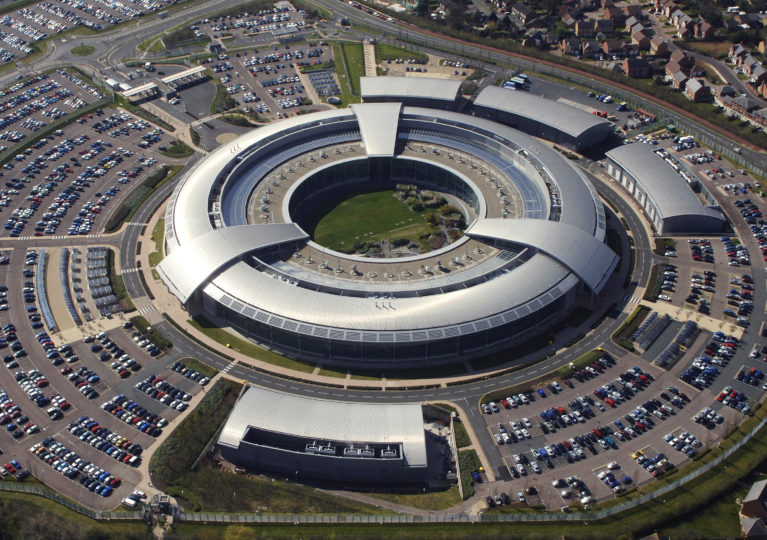Mass surveillance and Snoopers' Charter
Liberty launches crowdfunded legal challenge to powers in Investigatory Powers Act
Posted on 10 Jan 2017
The People vs the Snoopers’ Charter: Liberty launches crowdfunded legal challenge to indiscriminate state spying powers in Investigatory Powers Act
Liberty is launching a landmark legal challenge to the extreme mass surveillance powers in the Government’s new Investigatory Powers Act – which lets the state monitor everybody’s web history and email, text and phone records, and hack computers, phones and tablets on an industrial scale.
Liberty is seeking a High Court judicial review of the core bulk powers in the so-called Snoopers’ Charter – and calling on the public to help it take on the challenge by donating via crowdfunding platform CrowdJustice.
Martha Spurrier, Director of Liberty, said: “Last year, this Government exploited fear and distraction to quietly create the most extreme surveillance regime of any democracy in history. Hundreds of thousands of people have since called for this Act’s repeal because they see it for what it is – an unprecedented, unjustified assault on our freedom.
“We hope anybody with an interest in defending our democracy, privacy, press freedom, fair trials, protest rights, free speech and the safety and cybersecurity of everyone in the UK will support this crowdfunded challenge, and make 2017 the year we reclaim our rights.”
The Investigatory Powers Act passed in an atmosphere of shambolic political opposition last year, despite the Government failing to provide any evidence that such indiscriminate powers were lawful or necessary to prevent or detect crime. A petition calling for its repeal has since attracted more than 200,000 signatures.
Liberty’s challenge
Liberty will seek to challenge the lawfulness of the following powers, which it believes breach the public’s rights:
- Bulk hacking – the Act lets police and agencies access, control and alter electronic devices like computers, phones and tablets on an industrial scale, regardless of whether their owners are suspected of involvement in crime – leaving them vulnerable to further attack by hackers.
- Bulk interception – the Act allows the state to read texts, online messages and emails and listen in on calls en masse, without requiring suspicion of criminal activity.
- Bulk acquisition of everybody’s communications data and internet history – the Act forces communications companies and service providers to hand over records of everybody’s emails, phone calls and texts and entire web browsing history to state agencies to store, data-mine and profile at its will.
This provides a goldmine of valuable personal information for criminal hackers and foreign spies.
“Bulk personal datasets” – the Act lets agencies acquire and link vast databases held by the public or private sector. These contain details on religion, ethnic origin, sexuality, political leanings and health problems, potentially on the entire population – and are ripe for abuse and discrimination.
A major victory
Liberty is launching this challenge just weeks after a landmark ruling from the EU Court of Justice (CJEU) rendered core parts of the Investigatory Powers Act effectively unlawful.
In a challenge to the Data Retention and Investigatory Powers Act (DRIPA) by MP Tom Watson, represented by Liberty, the CJEU ruled the UK Government was breaking the law by indiscriminately collecting and accessing the nation’s internet activity and phone records.
DRIPA forced communications companies to store records of everybody’s emails, texts, phone calls and internet communications and let hundreds of public bodies grant themselves access with no suspicion of serious crime or independent sign-off.
Judges ruled the regime breached British people’s rights because it:
- Allowed indiscriminate retention of all communications data.
- Did not restrict access to the purpose of preventing and detecting precisely defined serious crime.
- Let police and public bodies authorise their own access, instead of requiring prior authorisation by a court or independent body.
- Did not require that people be notified after their data had been accessed.
- Did not require that the data be kept within the European Union.
DRIPA expired at the end of 2016 – but its powers are replicated and vastly expanded in the Investigatory Powers Act, with no effort to counter the lack of safeguards found unlawful in the case.
Support Liberty’s challenge by donating.
I'm looking for advice on this
Did you know Liberty offers free human rights legal advice?
What are my rights on this?
Find out more about your rights and how the Human Rights Act protects them
Did you find this content useful?
Help us make our content even better by letting us know whether you found this page useful or not


